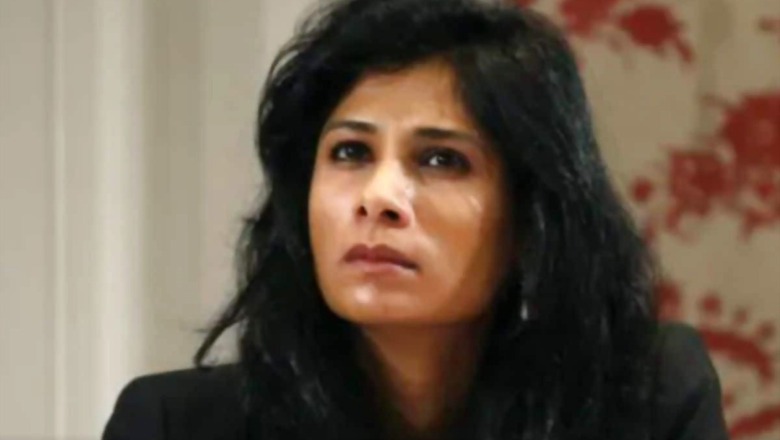
views
Chief economist at IMF, Gita Gopinath, said that the Insolvency and Bankruptcy Code should be given priority since bad loans are expected to rise in the wake of the economic disruption caused by the Covid-19 pandemic, and added that a ‘Bad Bank’ is a reasonable idea.
In an interview to CNBC-TV18 she said, “If you are going to have NPAs go up to 13 percent in the base line, that would require a much more efficient IBC process. The Bad Bank is certainly a reasonable idea but right now I would encourage the banks and the NBFCs to raise capital given how easy the financial conditions are at this point. Government should also prepare for needing to put in capital infusion into the public sector banks.”
A bad bank has been mooted by several experts ahead of the Union Budget 2021. It can act as an aggregator of all stressed assets in the system and work towards the resolution of these assets whereas banks can focus on business.
Since the government dominates the banking system, it is imperative that the government itself spearhead the bad bank idea.
The International Monetary Fund (IMF) has released its latest World Economic Outlook update. It says while vaccine approvals are good news for a turnaround from the pandemic, concerns still linger owing to new strains that have emerged in different parts of the world.
The IMF projects that the global economy will grow at 5.5 percent in 2021 and 4.2 percent in 2022. For 2020 though the global growth contraction is estimated at negative 3.5 percent, 0.9 percentage points higher than the previous forecast.
For India the picture looks more promising. The IMF has revised its growth forecast sharply higher to 11.5 percent for FY22 and 6.8 percent for FY23. This makes it the only country projected to register double-digit growth after a minus 8 per cent growth rate in 2020.
“What has kind of worked well for India is that when the economy opened up after the stringent lockdowns, you saw activity recovering much faster than expected. Mobility has returned much more quickly. While in other economies when you reopened, you then had a second and third strong wave of the pandemic, that has not happened in India,” Gopinath said.
She said that India has actually seen a sharp decline in the number of active cases, which may be a reflection of the fact that there were many more in India who were infected but were asymptomatic and therefore have the anti-bodies. “So that is a very important piece of this revision too,” she added.
Read all the Latest News, Breaking News and Coronavirus News here



















Comments
0 comment